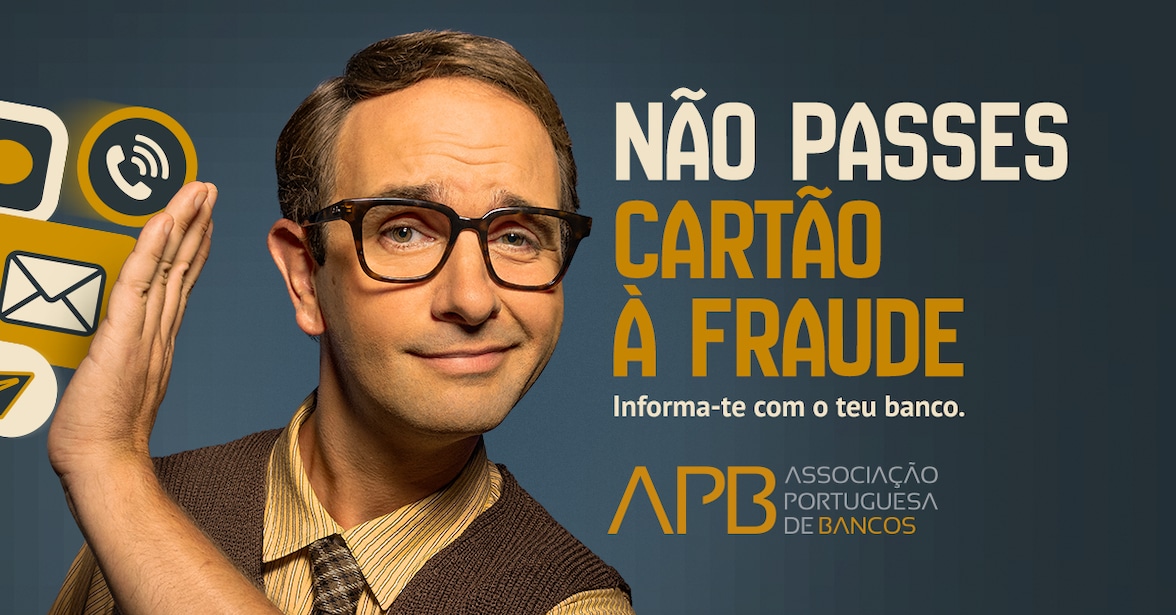DO NOT GIVE YOUR CARD TO A FRAUDSTER
Frauds evolve and your protection must evolve too.
Our priority is to ensure we think ahead of criminals. We want you to know how to protect yourself and what to do if you suspect fraud.
Prevention is the best protection.
-
Most common scams
-
Recommendations to take into account
The impact of AI on fraud
While Artificial Intelligence has positive aspects, we must bear in mind that it is something that is constantly learning, and therefore, we must always question its results.
AI works for both good and bad and its development allows frauds to become increasingly sophisticated and difficult to detect. With the ability to clone voices, create deepfakes (fake videos) and produce error-free texts for emails/SMS, it is essential to be more attentive than ever to even the smallest details.
How should I act in case of suspicion?
Protection starts with you.
Recommendations to take into account
Do not share personal information: Never give out passwords, debit or credit card numbers, security codes, or two-factor authentication (2FA) codes. Remember that BBVA never requests this data.
Attention when using 2FA authentication: This model adds an extra layer of protection. Instead of using just a password, this authentication requires a second (single-use) code that is usually sent via SMS or generated in an app. Never share it.
Create strong passwords: Don't take any risks, use complex and unique passwords for each account. Combine letters, numbers and upper/lower case.
Monitor your accounts: Check your bank statements and card bills regularly. This way you can identify if there are any suspicious transactions and act quickly.
Attention to urgent communications: a sense of urgency is a common fraud tactic. Be suspicious of urgent requests such as data updates, transfer requests, etc.
Device and network security
Keep your software and applications up to date whenever possible: Ensure your operating system, antivirus, and applications are always up to date to address security vulnerabilities.
Use public Wi-Fi networks sparingly: Unsecured Wi-Fi networks can be easily intercepted by criminals. When connecting to these public networks, avoid accessing accounts or performing banking transactions. Try to use the mobile data network (3G, 4G and 5G).
Pay attention to your home Wi-Fi network: Your Wi-Fi network is not immune to danger. Do not use identifying names (e.g., first names) and create a strong, complex password.
Be careful when downloading apps: Make sure that when downloading a new application you do so from the official stores. Always check other user reviews before downloading.
Care with cards and online shopping
Payment details: Before confirming a transaction, always check that the details displayed are correct.
Always check payment terminals and ATMs: Before inserting/using a bank card, examine the device. These devices can be tampered with with new keyboards, the addition of hidden cameras, or dual card readers.
Never lose sight of your card: When paying, always have your card in sight and never give it to any employee.
Never share your card PIN with third parties: This number is yours alone. Never share it. If possible, change it from time to time.
Shop on secure websites: Before entering your card details to make a payment, make sure the website you are on is trustworthy. Safe addresses start with ''https://''. Use well-known shops with a good reputation. Otherwise, always look for reviews from other customers.
Tips for companies
Fraud in companies is common and can be avoided:
Increase internal control: Establish systems of separation of duties so that a financial transaction does not depend on just one person.
Regular audits: This ensures that there are periodic reviews of the company's finances and allows for the identification of irregularities or vulnerabilities in the company's system.
Technology: Make sure you use a good security system and that all software is up to date. For extra security, implement two-factor authentication (2FA) for company employee accounts.
Beware of suspicious orders: You should never share data or make transfers outside of the usual protocols.
Online shopping security: Use trusted platforms that include fraud prevention systems.

